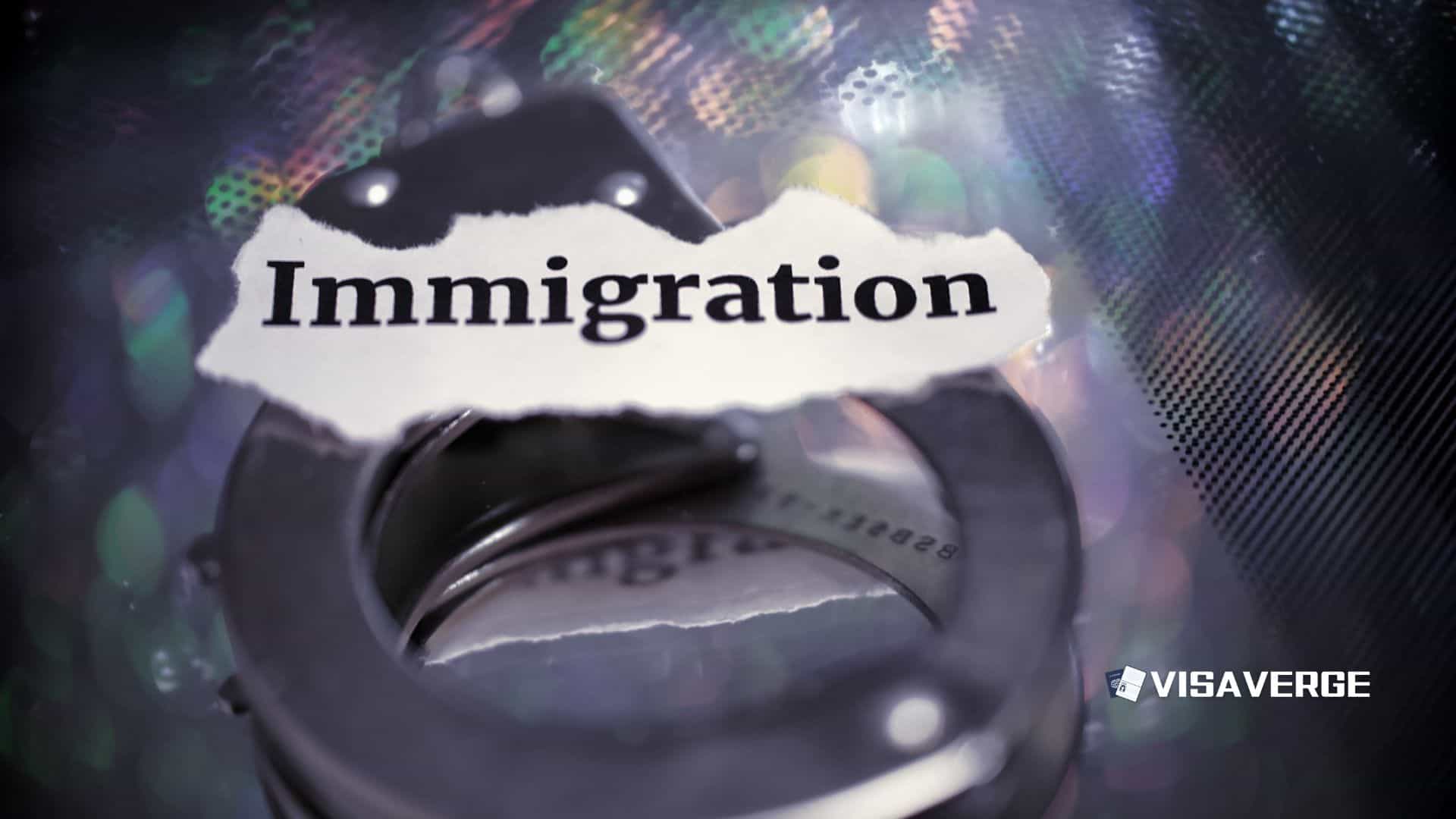(UNITED STATES) The U.S. Treasury Department is moving to change who can receive several major refundable tax credits, in a step critics say will shut out millions of immigrant taxpayers starting with tax year 2026. Under a planned rule, the Treasury intends to treat credits such as the Earned Income Tax Credit (EITC), Additional Child Tax Credit (ACTC), American Opportunity Tax Credit, and the Saver’s Match Credit as “federal public benefits,” a legal shift that would bar many immigrants from claiming support they can receive today.
Who would be affected

The proposal would hit a wide range of people who live and work in the United States but do not hold permanent status. According to the plan, the groups most exposed include:
- DACA (Deferred Action for Childhood Arrivals) recipients
- People with Temporary Protected Status (TPS)
- Foreign workers on employment visas
- International students
- Some mixed‑status families where children are U.S. citizens but parents are not
Tax lawyers say that by tying the EITC and ACTC to immigration categories, the administration is linking tax filing more directly to immigration enforcement.
Legal basis claimed by Treasury
Treasury officials say they are acting on a new reading of the Personal Responsibility and Work Opportunity Reconciliation Act of 1996, a welfare reform law that restricts access to federal public benefits for many noncitizens.
- The department sought legal advice from the Justice Department and drafted regulations that redefine several refundable credits as benefits covered by the 1996 statute.
- Those credits currently function as wage supports and family supports for low‑ and moderate‑income workers, including many immigrants with legal work authorization.
Treasury Secretary Scott Bessent defended the change in a written statement, arguing that the government is simply applying existing law more strictly.
“We are enforcing the law and preventing illegal aliens from claiming tax benefits intended for American citizens,” he said.
The statement framed the plan as part of a broader policy to use every tool of the federal government, not just the Department of Homeland Security, to control immigration and restrict what the administration sees as magnets for unauthorized migration.
Which tax credits are specifically targeted
The rule would reclassify several refundable credits as federal public benefits. Key examples:
| Credit | Typical purpose |
|---|---|
| Earned Income Tax Credit (EITC) | Reduces tax owed and can produce a refund for low- to moderate-income workers (see IRS: https://www.irs.gov/credits-deductions/individuals/earned-income-tax-credit-eitc) |
| Additional Child Tax Credit (ACTC) | Refundable portion of the Child Tax Credit for eligible families |
| American Opportunity Tax Credit | Education-related credit for some college expenses |
| Saver’s Match Credit | Matches contributions by some low-income savers in retirement accounts |
These refundable credits can turn a low tax bill into a net refund, especially for families with children. By reclassifying these refunds as federal public benefits, the government would exclude many noncitizens from even applying, regardless of how much they paid in.
Critics’ concerns and economic impact
Immigrant advocates, labor researchers, and anti‑poverty groups reacted with alarm, saying the shift would punish people who already contribute heavily in taxes.
- Daniel Costa, director of Immigration Law and Policy Research at the Economic Policy Institute, called the idea “terrible and unfair”, adding that it makes no sense “to deny tax credits to people who have paid taxes and are eligible for them because of their immigration status.”
- Critics stress many DACA and TPS holders work legally, pay federal, state, and local taxes, and in some cases have U.S. citizen children, yet could soon be blocked from refunds that help keep their families above the poverty line.
Economists who track immigrant contributions say the rule could take billions of dollars a year out of communities where immigrants live and spend. While immigrant taxpayers would still pay taxes to Treasury, far fewer would receive relief through refundable credits such as EITC, ACTC, or the Saver’s Match Credit.
Advocates argue this undercuts the basic principle that the tax code should treat people fairly based on their work and income, not their passport.
Enforcement and privacy concerns
Beyond the financial loss, policy analysts warn the plan could push the tax system deeper into immigration checks.
- Because the rule depends on who counts as eligible for a federal public benefit, the government would need a way to sort filers by immigration status.
- Critics say that could turn the IRS into another front in what they describe as a “deportation dragnet,” with tax data helping to identify people for immigration enforcement.
- They fear some immigrants, even those allowed to work, may become afraid to file accurate returns if they think sharing information could expose them or relatives to deportation risk.
Historical context and administrative approach
Supporters of strict limits note that the direction is not entirely new. The United States has long barred undocumented immigrants from collecting Social Security retirement checks or Medicare coverage, even though many pay payroll taxes that support those programs.
- The Treasury’s move fits that pattern by saying refundable tax credits — though paid through the tax system — should be treated more like welfare programs regarding immigrant eligibility.
- Analysis by VisaVerge.com highlights how benefit rules can shift without Congress passing new immigration law, simply through agencies’ statutory interpretations.
This decision also reflects a “whole of government” approach to immigration enforcement, where financial, labor, and social service agencies are directed to play a role beyond border or court actions. By tying credits such as the Saver’s Match, EITC, and ACTC to immigration categories, the Treasury is using the tax code as an additional gatekeeper.
Practical consequences and timeline
For immigrant households already living on tight margins, the impact could be sharp once the rule takes effect.
- Effective date / deadline: The change would apply beginning with tax year 2026, meaning returns filed in 2027 could be affected.
- Families who used EITC refunds to cover rent, child care, or tuition bills may see that support disappear even though their work hours and pay have not changed.
- Mixed‑status families could face mixed eligibility — for example, one child may still qualify while another person in the household does not, depending on how the final regulatory language draws lines.
Advocacy groups warn these changes will deepen hardship in communities that already face higher rates of poverty and fewer safety‑net options.
What’s next and where people can get answers
Tax preparers and community organizations are waiting for the detailed regulatory text to see exactly how the administration will define each affected group.
- Until the final rule is published, many immigrant workers and students will have questions with no clear answers about eligibility for the EITC, ACTC, or Saver’s Match in future years.
- What is already clear from the Treasury’s announcement is that the 2026 tax year marks the start of a far more restrictive era for many immigrant taxpayers in the United States.
Key takeaway: If you or someone you assist may be impacted, monitor the Treasury’s regulatory releases and seek guidance from trusted tax preparers or legal advocates before filing returns for tax year 2026.
The Treasury proposes reclassifying major refundable tax credits as federal public benefits, effectively blocking many nonpermanent residents from claiming EITC, ACTC, American Opportunity Tax Credit and Saver’s Match beginning tax year 2026. The change could cut billions from immigrant communities, create mixed eligibility within families, and push the IRS toward immigration status checks. Critics say it punishes taxpayers who work and pay taxes; supporters call it enforcement of existing law. Taxpayers should monitor final regulations and consult trusted preparers or advocates before filing for 2026.













